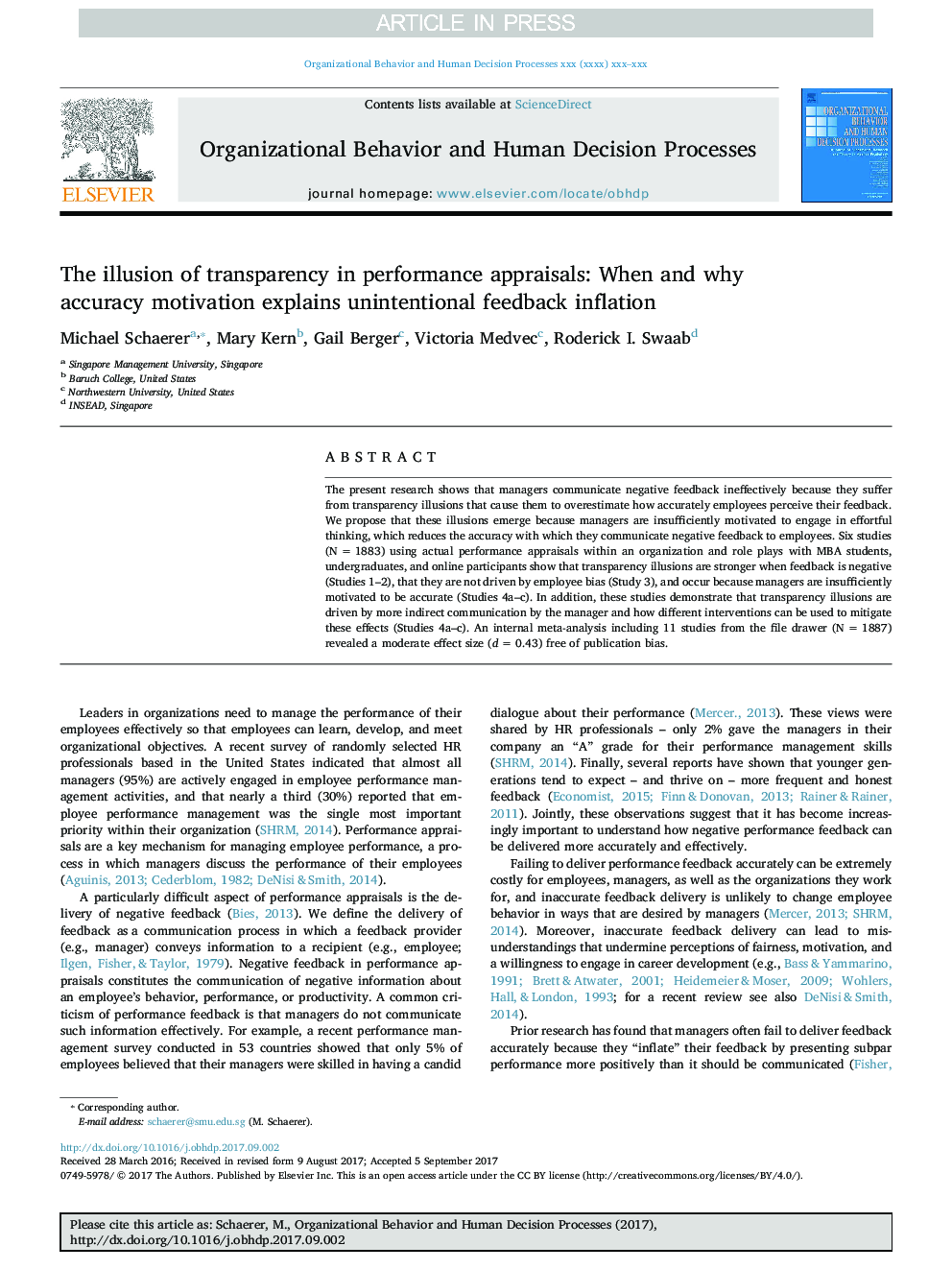| Article ID | Journal | Published Year | Pages | File Type |
|---|---|---|---|---|
| 7248070 | Organizational Behavior and Human Decision Processes | 2018 | 16 Pages |
Abstract
The present research shows that managers communicate negative feedback ineffectively because they suffer from transparency illusions that cause them to overestimate how accurately employees perceive their feedback. We propose that these illusions emerge because managers are insufficiently motivated to engage in effortful thinking, which reduces the accuracy with which they communicate negative feedback to employees. Six studies (N = 1883) using actual performance appraisals within an organization and role plays with MBA students, undergraduates, and online participants show that transparency illusions are stronger when feedback is negative (Studies 1-2), that they are not driven by employee bias (Study 3), and occur because managers are insufficiently motivated to be accurate (Studies 4a-c). In addition, these studies demonstrate that transparency illusions are driven by more indirect communication by the manager and how different interventions can be used to mitigate these effects (Studies 4a-c). An internal meta-analysis including 11 studies from the file drawer (N = 1887) revealed a moderate effect size (d = 0.43) free of publication bias.
Related Topics
Social Sciences and Humanities
Business, Management and Accounting
Marketing
Authors
Michael Schaerer, Mary Kern, Gail Berger, Victoria Medvec, Roderick I. Swaab,
